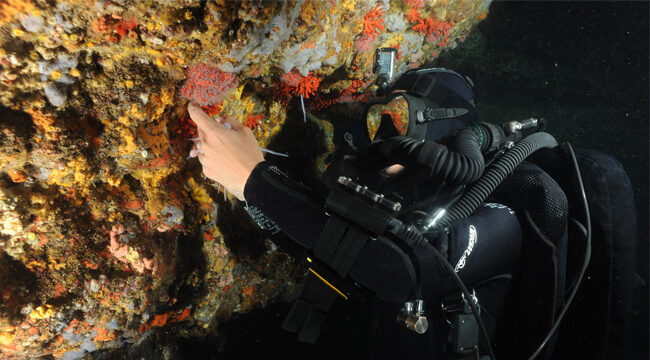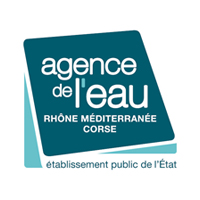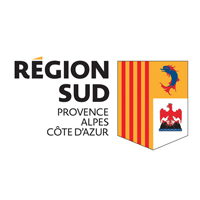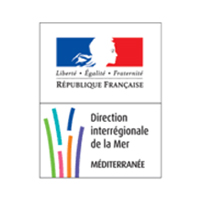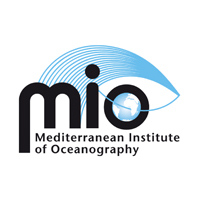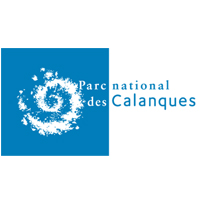OBJECTIVES
The TRANSCOR project aims to explore preservation and restoration solutions of red coral (Corallium rubrum) and red gorgonian (Paramuricea clavata) populations under global change and anthropogenic pressures. It involves a series of red coral (C. rubrum) and red gorgonian (P. clavata) transplantation experiments in the Calanques National Park (Marseilles).
DESCRIPTION
TRANSCOR aims at a better understanding of C. rubrum and P. clavata adaptation capacity under global change. The main goal is to evaluate the possible damaged populations restoration modalities by means of healthy colonies transplantation. The protocol is built on an experiment set in 3 distinct models in order to study these species survival (1) following an in situ transplantation in the initial habitat, (2) after altered developmental conditions using a depth-crossing transplantation and (3) following modified environmental context using intersite transplantation at constant depth.
In order to process a P. clavata transplants’ health conditions fine diagnosis, a microbiological analysis of bacterial communities associated with transplants was performed. This part of the study is performed throughout the TRANSCOR project by the Mediterranean Institute of Oceanography (MIO). This part of the project focuses on the bacterial communities involved in the formation of stable associations with P. clavata and thus contributing to its biological functioning; this analysis allows the identification of possible changes in the microbiome in relation to cross-depth transplants and inter-site transplants. It thus provides information on the installation of possible pathogens that can cause mortality episodes.
In this experimental research project, 200 transplants of C. rubrum and 800 transplants of P. clavata were performed from healthy colonies and in emblematic sites located in the heart of the Calanques National Park in Marseilles. The transplants were monitored at T0 + 1 month, T0 + 3 months, T0 + 6 months, and T0 + 12 months. At each monitoring, the transplants’ presence or absence and their possible necrosis were noted by visual observations. In parallel, a photogrammetric survey of the transplants is carried out in order to evaluate the growth of the C. rubrum transplants and to archive monitoring and measurements.
In order to develop a respectful transplantation method for the mother colonies, the monitoring of their vitality was carried out in parallel with the transplants monitoring, and will continue over the long term.
This project, funded under the call for research projects led by the DIRM (Direction Interrégionale de la Mer) in 2018, is one of the concretization of the Mediterranean PAMM (Plan d’Action pour le Milieu Marin) declining the MSFD (Marine Strategy Framework Directive).
Short fil illustrating the TRANSCOR project
Production : Le Gobie
Scientific report of the TRANSCOR project (in french)
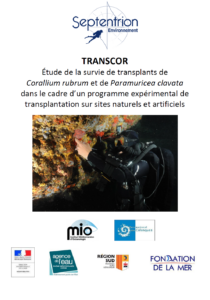
The scientific report on the project is available at the following link: https://zenodo.org/record/8131469
